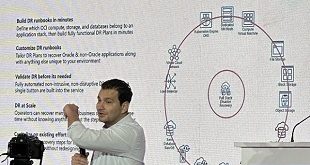Information and education
A number of factors determine whether small-scale farmers adopt a new seed or not.
Farmers need information on how the seeds work, and will decide whether or not to use them based on this. Whether a farmer has relevant information is based on the farmers’ network, specifically, contact with extension services, NGOs or cooperative memberships.
Their understanding is also affected by levels of education or farming experiences. If the farmer decides to cultivate the new seed, it must be physically available, accessible, and affordable.
However, studies also show that even when critical conditions are met – farmers have awareness, access and can afford the seeds – universal adoption is highly unlikely. One of the reasons for this is because farmers prefer traditional varieties.
This could be because the traditional varieties may be more resistant to pests, taste more familiar or mature faster. There’s also evidence that some drought tolerant varieties don’t suit certain local conditions.
Counterfeit seeds are another issue. Between 30% and 40% of seeds traded in Uganda are thought to be counterfeit. Farmers will be less likely to take the risk of using modified seeds if they believe they might be counterfeit.
Political will
All of these barriers to a way forward in improved maize seed adoption can be tackled with government interventions and public-private cooperation. First, the information bottleneck must be addressed with awareness campaigns and training via extension services or international aid programs.
If it’s already been happening, there should be investigations into why it’s not working and ensure that the delivery of information is customised and simplified according to the characteristics of the target farmers. The government must ensure that quality seed is available at local markets or through extension services.
There also needs to be better supervision to prevent counterfeits from permeating the market. It’s also important for the government to incorporate maize farmers’ preferences in the breeding process, based on their local conditions.
In addition, the government must help smallholders who lack cash and credit with a subsidy or voucher. International aid programmes could distribute free packages with the modified seeds and fertiliser to the most vulnerable.
The challenge of getting more farmers to adopt the drought-tolerant seed is certainly overwhelming. But it is necessary to improve livelihoods and eventually the maize industry of Uganda.
****
HyeJin Lee is Assistant Professor, Konkuk University
Source: theconversation
 The Independent Uganda: You get the Truth we Pay the Price
The Independent Uganda: You get the Truth we Pay the Price



